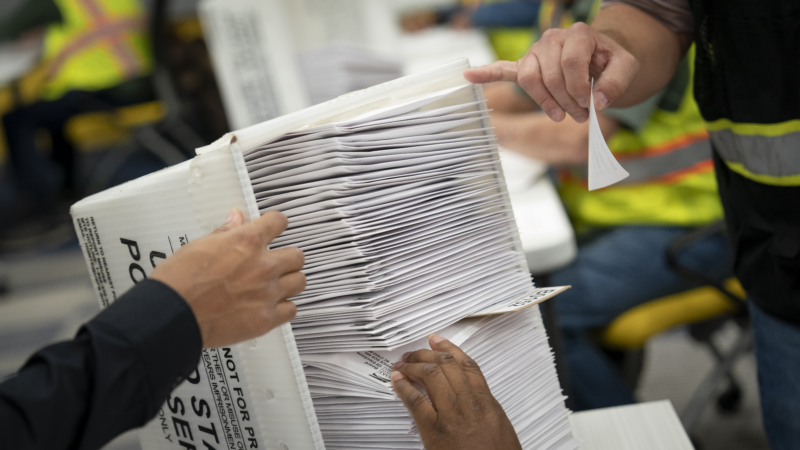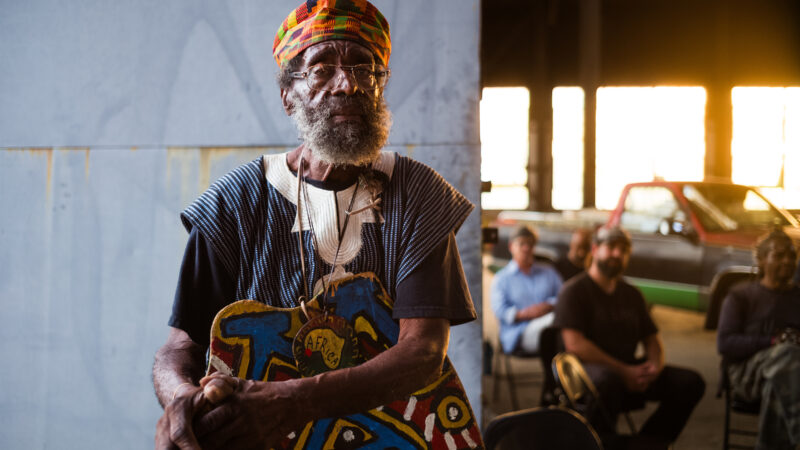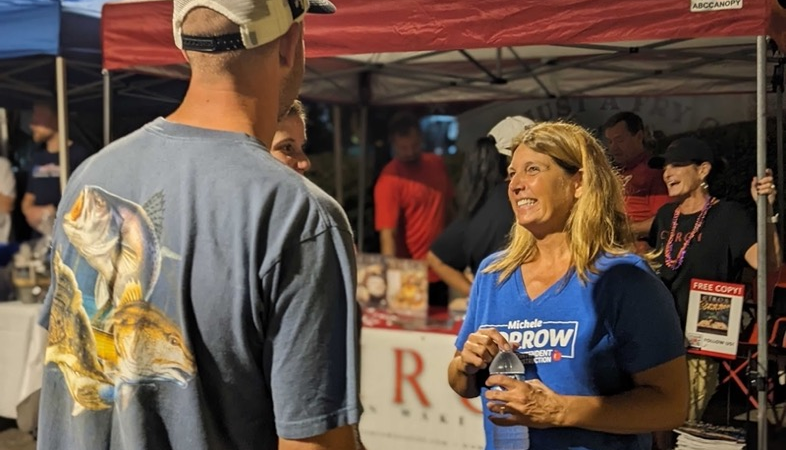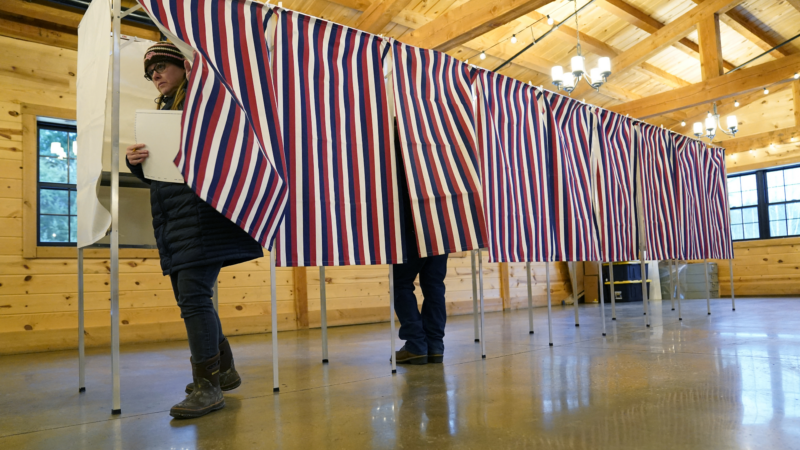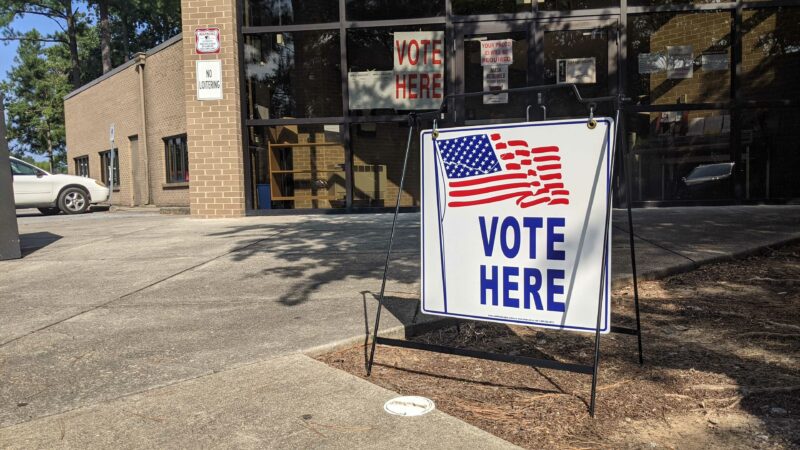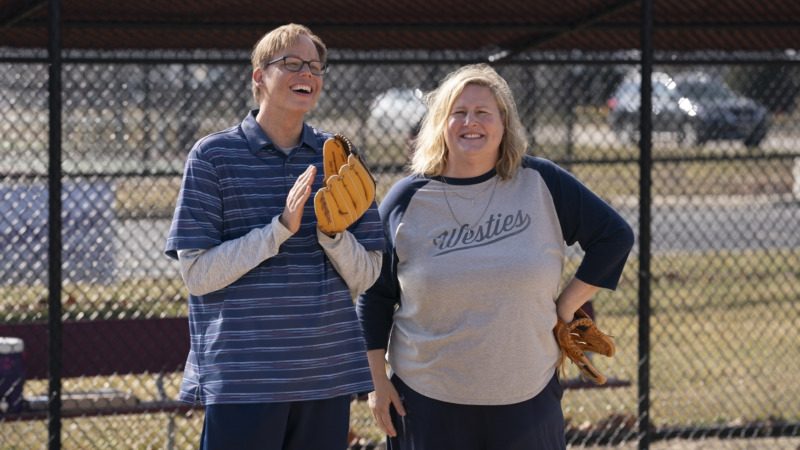Republican lawsuits over overseas and military voting hit setbacks in 2 swing states
Two Republican legal challenges to the legitimacy of ballots cast by U.S. citizens living abroad, including U.S. military members, hit setbacks Monday.
A Michigan state judge dismissed one of three lawsuits that GOP groups filed in swing states in recent weeks, while in a North Carolina-based case, a state judge rejected the Republican National Committee’s request for the court to order that returned ballots of some overseas voters be set aside and not counted until the voters’ eligibility can be confirmed.
In the Michigan case, Judge Sima Patel of the state’s Court of Claims issued an opinion that underscored the fact that the RNC brought its case weeks before the last day of voting in this fall’s election. Patel called the lawsuit an “11th hour attempt to disenfranchise these electors in the November 5, 2024 general election.”
For years, Michigan has allowed eligible uniformed service members and other citizens living outside the U.S. to vote in federal elections, as required by a federal law known as the Uniformed and Overseas Citizens Absentee Voting Act. Guidance issued by Michigan’s secretary of state says: “A United States citizen who has never resided in the United States but who has a parent, legal guardian, or spouse who was last domiciled in Michigan is eligible to vote in Michigan as long as the citizen has not registered or voted in another state.”
But in court, the Republican National Committee argued against the eligibility of that category of overseas voters, who, the RNC contended, do not meet requirements under Michigan’s constitution for voters to be state residents.
Patel, however, concluded that the guidance language in the secretary of state’s manual for election officials is “consistent with federal and state law, and the Michigan Constitution.”
In the North Carolina case, the RNC made a similar argument against state election rules that allow absentee voting by citizens who were born outside the U.S. and whose parent or legal guardian’s former residence is in the state.
But with “absolutely no evidence that any person has ever fraudulently claimed that exemption and actually voted in any North Carolina election,” Superior Court Judge John Smith wrote in a ruling released Monday, the court found there is no need for an emergency court order to block that category of overseas voters from casting ballots and to segregate and not process any of their returned ballots.
Smith noted that the election rule the RNC is challenging “has been on the books at least since 2011 as a bill adopted with bi-partisan support,” adding that both sides of this lawsuit “have been involved in elections under the existing statute since its passage without complaint.”
A ruling in a similar federal lawsuit brought by six Republican members of the U.S. House of Representatives from Pennsylvania is expected soon.
Many legal experts say these cases are also not likely to go anywhere in part because they were filed after officials started sending out ballots to overseas voters.
But these experts are concerned the cases are laying groundwork for questioning election results.
Edited by Benjamin Swasey
As the WNBA’s historic season comes to an end, players say it’s time for higher pay
Record-breaking TV ratings helped the WNBA secure a more lucrative media rights deal this year. Now, the players' union has opted out of its contract, a move aimed at better salaries and benefits.
From scrap to sculpture: Joe Minter’s art reflects Birmingham’s pain and joy
Artists often use their surroundings to influence their work. In the case of Birmingham artist Joe Minter, his sculptures can’t be separated from his life in the city – literally. A site-specific exhibit in Titusville recently honored Minter’s legacy. “Joe Minter is Here” highlighted Minter’s life and artwork. The exhibit, in a centuries-old steel foundry […]
GOP candidate for NC schools chief has spread conspiracy theories, ‘groomer’ rhetoric
Michele Morrow has a track record of falsehoods - for example, saying Islam is a cult and that the plus in LGTBTQ+ stands for pedophilia.
Local voter guides: Find candidate information and resources in your community
What you need to know about the races, issues and decisions being made in your community.
Efforts to restore voting rights for people with felony convictions lag in the Gulf South
A new report shows that more people with past felony convictions can vote in this election cycle than previous ones, but millions remain disenfranchised.
‘Somebody Somewhere’ is about finding your people: Here’s how Bridget Everett found hers
Everett never felt like she fit in her hometown of Manhattan, Kan. After moving to New York City and developing a cabaret show, she returned to Kansas for her HBO show Somebody Somewhere.
